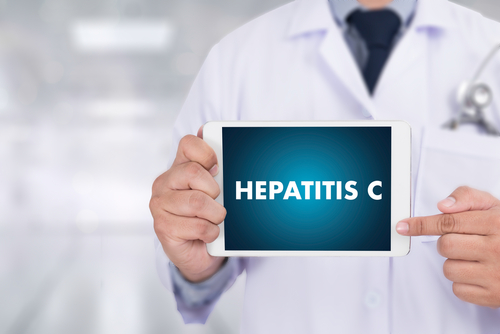Zepatier Found to Treat HCV Infection in Sickle Cell Patients in Phase 3 Study
Written by |

Clinical trial results show that Zepatier (elbasvir/grazoprevir) is highly effective against hepatitis C virus (HCV) infection in sickle cell disease patients and others with inherited blood disorders.
The study with these findings, “Elbasvir/Grazoprevir for Patients With Hepatitis C Virus Infection and Inherited Blood Disorders: A Phase III Study,” was published in the journal Hepatology.
Before universal screening of blood and blood-derived clotting factors came into use, a large proportion of patients with such blood disorders, like sickle cell disease, were also infected with HCV.
Improvements in blood banking procedures have virtually ended cases of transfusion-associated HCV infections in many countries, but HCV-contaminated blood products continue to be responsible for new cases of HCV infection in poorer nations.
The randomized, placebo-controlled, Phase 3 clinical trial (NCT02252016),evaluated the effectiveness and safety of Zepatier, a direct-acting antiviral agent, in 159 sickle cell and other bleeding disorder patients with HCV infection. Its primary endpoint was the number showing sustained virologic response (SVR) after 12 weeks of treatment. SVR is defined as no post-treatment evidence of hepatitis C virus in the blood.
Patients were randomized into two treatment groups, with one receiving Zepatier for 12 weeks (107 people) and the other (52 people) given 12 weeks of placebo followed by four weeks of Zepatier. Both groups were then followed for another 24 weeks.
Results at 12 weeks showed 100 patients (93.5%) in the treatment group achieved SVR, while six relapsed, and one was lost to follow-up.
Among sickle cell disease patients, 94.7 percent (18 of 19) achieved SVR. Among those with other blood disorders, 97.6 percent of β-thalassemia patients, and 89.4 percent of hemophilia A/B or von Willebrand disease patients also had no evidence of HCV infection. The change in mean hemoglobin levels was similar in both the initial treatment and the delayed treatment group.
Serious adverse events were reported in 2.8 percent (3) of patients initially treated, and in 11.5 percent (6) of patients in the delayed treatment group, including one crisis in a sickle cell disease patient. But the most common side effects were headache, fatigue, nausea, and asthenia (physical weakness).
“These results add to the expanding pool of data available for EBR/GZR, indicating a high level of efficacy and favorable tolerability in patients with HCV infection,” the researchers concluded.





